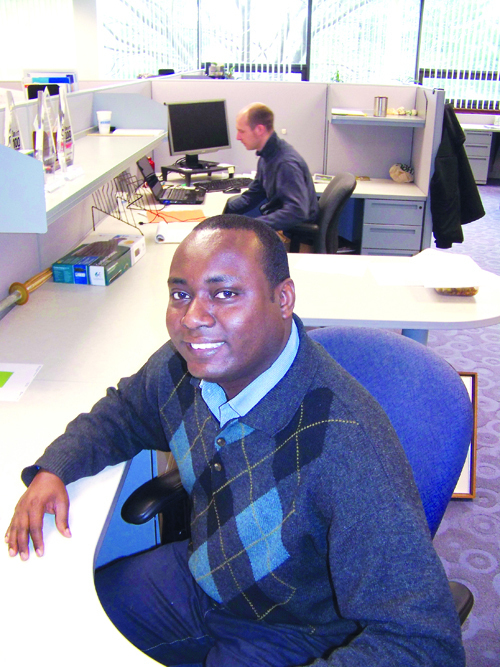
The outdated cell phone or laptop you have hanging around the house could have a cash value. At the least, it should be recycled. A new company called Second Rotation can help in either case.
Rousseau Aurelien, CEO of Waltham, Mass.-based Second Rotation, launched the Web site SecondRotation.com in July 2007. The site allows users to sell their old cell phones, digital cameras, laptops and other gear directly to Second Rotation or recycle the products that aren’t worth anything.
“Consumers part ways with products either to upgrade or because the item is defective and it costs less the replace it than to fix it. This turnover has been happening at a high rate in recent years,” said Aurelien.
Aurelien, an entrepreneur adept at creating and growing Internet businesses, like the online channel consultancy Cambridge Information Systems, said he started Second Rotation after learning that only one in 30 eBay users are sellers, and the rest are buyers – meaning most people are not selling their items on eBay, they’re keeping them.
“About 90 percent of the time, consumers want to upgrade to the latest and greatest, and they end up holding onto their old products instead of selling them, because they don’t want the hassle of listing it. It takes time, and there is uncertainty involved,” Aurelien said.
Another reason people don’t bother listing their old electronics for sale is because the product isn’t worth anything. Knowing this, Second Rotation expanded its service in October to recycling electronics that hold little or no market value.
On a daily basis, Second Rotation sifts through millions of online sales transactions for pre-owned gadgets to determine product values, and to identify products that are recyclable. When a consumer plugs the information about their item into SecondRotation.com and finds their item has no value, they can ship it for free in a box with another product they are looking to sell, or pay to ship it alone.
Second Rotation sends the items to partner companies, like Michigan-based ReCellular, for recycling.
“It costs us money to do the recycling, but we are doing it as a service to attract new customers,” Aurelien said. “Though it isn’t money, people do get a reward from this – it feels good to know you have recycled.”
Electronic waste (e-waste) is growing two to three times faster than any other waste stream, according to the Environmental Protection Agency (EPA). There are serious environmental concerns regarding e-waste because hazardous elements and compounds can be found in everyday electronics, like the lead in Cathode ray tubes (CRTs), the picture tubes found in computer monitors and televisions.
In April 2000, Massachusetts banned the disposal of CRT’s in landfills. By 2003, more than 330 New England municipalities had e-cycling programs – approximately 90-percent of them in Massachusetts, the EPA reports.
Rhode Island hasn’t passed an e-waste disposal law to date, but in 2000, the Rhode Island Resource Recovery Corp. of Johnston began collections of residential computer waste – the first statewide permanent collection of e-waste in the United States. The Resource Recovery Corp. holds monthly collections for e-waste including computers, cell phones, CPUs, monitors, printers, keyboards, laptops, Zip drives, scanners, modems, and mouse devices at its Johnston headquarters, as well as additional collections at various cities and towns throughout Rhode Island.
In the case of Second Rotation, about 10-percent of the products sent to them are for recycling while the other 90 percent are shipped in return for cash, Aurelien said.
When Second Rotation buys an item, they refurbish it and sell it on marketplaces like eBay. The trade value Second Rotation given to customers for an item allows some room for the private company to make profit on the resale, assuming it sells, Aurelien said.
For example, a Sprint Blackberry RIM 7250 in good condition was up for sale on eBay for $45 starting bid price on February 14. That same Blackberry with the AC adaptor, rechargeable battery, original software CD, manuals and cables gets $23 on SecondRotation.com. The price drops if all those accessories aren’t there; without the software, manuals and cables that Blackberry is worth $20, because Second Rotation would have to replace those parts to re-sell it. If that Blackberry doesn’t have the rechargeable battery and doesn’t power on, it won’t fetch any money at all, and would be a candidate for recycling. •












